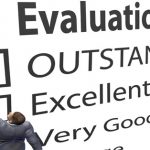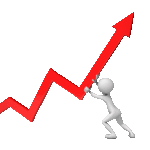What is my business worth is a bit like looking into a crystal ball.

Why? A business has many values.
If you are a business owner considering selling your business, either in the short term or as part of a longer-term plan, the first step is to decide how much you want to get for it. Asking yourself "What is my business worth?" is a not really going to help. Read on...
You need to give some very considered thought to "Why do I want to sell?" and "What will I do after the sale?" Do you need the money from the sale to fund the next stage of your life? That could be to buy another business, retire, fund a hobby or just take some time out to enjoy life.
Do you actually need to sell? If you don't need the money then keep the business under management and enjoy the cashflow income.
The answers to these questions will give you the value you want or need to sell for. That will produce one value.
A second value, of course, is what is it worth in the market. The answer to this involves a whole lot more analysis and research. It also depends very much on the type of buyer that is attracted to the business. First of all, let's look at the accepted practice for valuing small and medium businesses.
The first step is to assess the cash that the business is generating for you and the risk to that continuing and growing under a new owner.
Determining the cash component is relatively straightforward, involving working out the proprietor's earnings before interest, tax, depreciation, and amortization (PEBITDA) averaged over three years, and before one owner's wages, super, and discretionary spending. This is also known as the "maintainable adjusted nett profit. Assessing the cash is relatively easy so long as the financials are clean and up to date.
However, assessing the risk component is far more complex and involves considering factors such as industry risk, owner dependence, location and lease terms, economic risk, and other risks related to the new owner taking over the business. A due diligence exercise, conducted from a buyer's perspective, can help identify and evaluate these risks. Ultimately, a business is worth what a buyer is willing to pay for it

If you want to know more about how I do this schedule a 'no obligation call with me.
Know your starting point and let's create a roadmap to get you to where you have options for exiting your business.
So why did I say at the beginning that a business has many values?
Who is going to buy your business? Broadly speaking there are three types of buyers:
Owner operator buyer - this type of buyer and people who are happy to be working in the business and can see themselves doing what the current owner does. They like what the business does and can see themselves spending time in the business and growing it. The lifestyle suits them. These buyers are most common for businesses that sell for up to $500,000.
Financial buyer - this type of buyer is most interested in financial performance and their main interest is getting a quick return on their investment (ROI). They probably have in mind to buy, build and sell in 3 to 5 years. They will most likely negotiate hard on the buy price to get a quick ROI.
Strategic buyer - these are buyers who see the potential to grow the business that possibly other buyers, and sometimes the current owner, don't see. There may be intellectual property in the business that they want access to, or a client base that they can sell other products or services to (e.g. like Microsoft buying LinkedIn). A strategic buyer could be a competitor, a complimentary business, or an interstate or international business that wants a presence where the business is. There are lots of different reasons these buyers see value in a business. These buyers will often pay more for a business. They are often the best buyers but can also be the most difficult to find and approach.
Summing it all up. What a business is worth in practice!
A business is worth what a buyer is willing to pay for it. From my years of experience when I was a business broker, this is what happens in practice:
- The business owner has in their mind what they think the business is worth AND what they ‘need’ to be able to sell for
- A broker or valuer uses the PEBITDA or other recognised appraisal or valuation process with market experience
- A buyer has their own idea of what the business is worth based upon what they want to pay
- The buyer’s accountant or whoever is doing due diligence comes up with a value based on the financials but with little or no market knowledge
- If finance is required to buy the business, the bank or finance lender will put a value on the business and who knows what they will come up with
- If the business is part of a franchise, the franchisor will have their opinion of the value as well – often inflated!
So, do you see what I mean? It requires the seller, the buyer, the buyer’s accountant and the finance lender (if required) to all agree before a sale can be completed. And they all have their own view of what the business is worth.
As a business owner, it is important to have a starting point for the value of your business. PEBITDA plus market experience is a reliable valuation method, to begin with, and you should work on making your business more valuable and saleable. However, before considering selling your business, it is crucial to think about whether selling is the best move for you and your business. That's where I come in! My business ready-for-sale assessment, based on my many years of experience as a business broker, will get you started on your roadmap to growing and exiting your business.
My advice is always the same: Start thinking about your exit strategy early. Preferably three or so years prior to selling. Get a team together to advise and work your plan as only the best-prepared businesses will sell for top price, quickly and easily.
Take action!
Get A Free Saleability score and recommendations for improvement. Takes 3 or 4 minutes and gives you a customised report. All free and online.
Prefer to have a chat, then schedule a no-obligation call with me.


